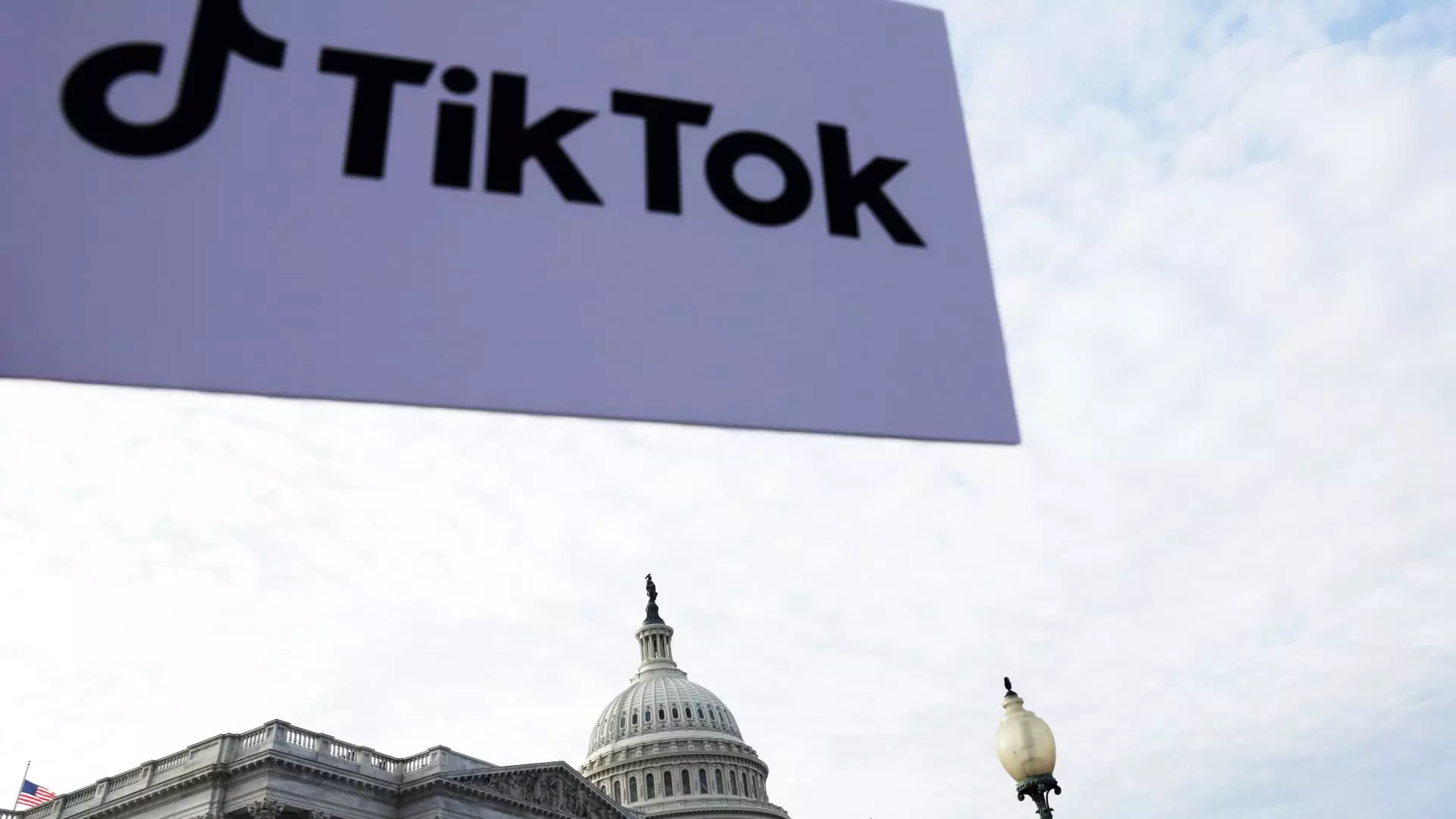TikTok, the Chinese-owned social media platform with millions of American users, is facing a critical juncture in its operational future within the United States. As both legislative pressures mount and corporate executives prepare for impending changes, the situation surrounding TikTok is a multifaceted narrative that poses significant implications for national security, corporate governance, and the broader social media landscape.
In a recent development, members of the House Committee have taken a bold step by sending letters to the CEOs of Apple and Google, urging them to prepare for compliance with a new law that could potentially ban TikTok in the United States. This move follows a decision made by the U.S. Court of Appeals, which upheld a law mandating that ByteDance, TikTok’s parent company, divest its stake in the app by January 19. The lawmakers emphasized that if ByteDance does not comply, both Apple and Google will be legally obligated to prevent the TikTok app from operating in their respective app stores within the United States.
This legislative directive reflects an increasing concern over the influence of foreign entities on U.S. digital ecosystems. The lawmakers cited national security risks associated with TikTok’s ownership, arguing that the application’s connection to China necessitates an urgent reassessment of its business operations in the U.S.
The letters to Tim Cook and Sundar Pichai make it clear that Congress has granted TikTok ample time to comply with necessary divestiture processes. Over 233 days have passed since the initial legislation was signed, a duration deemed sufficient for TikTok to pursue a solution that would satisfy U.S. security concerns. The language used in the communications illustrates the government’s stern expectation that tech giants enforce these regulations should TikTok fail to divest.
Moreover, the lawmakers highlighted the repercussions of a possible ban on TikTok, particularly the economic ramifications. They warned that American small businesses and social media creators could collectively face a staggering loss of $1.3 billion in sales and earnings amid a U.S. ban, suggesting that significant economic impacts are intertwined with the legal and regulatory frameworks surrounding foreign-held applications.
In a bid to counter the legislative squeeze, TikTok has deemed the law unconstitutional, asserting that it violates the First Amendment rights of its approximately 170 million American users. However, the court’s decision rendered in favor of the government underscores a significant viewpoint that national security can prevail over concerns about free speech. The court articulated that the law is “narrowly tailored” to address potential threats posed by foreign adversaries, thus marking a significant moment in the ongoing tussle between app developers and governmental authority.
In response to the alarming prospect of an effective U.S. ban, TikTok has sought recourse through legal avenues, filing a motion for an injunction to delay the enforcement of the ban until the Supreme Court can review the case. This highlights a critical element in the ongoing saga – the balance between national security and the rights of users, as well as the complex navigation required by technology companies caught in the crossfire.
The Political and Corporate Nexus
Interestingly, the political dimensions of TikTok’s existing challenges are further complicated by the roles of high-profile investors and potential future policies under President-elect Donald Trump. Reports indicate that Trump’s prior attempts to ban TikTok were influenced by his meeting with billionaire Jeff Yass, a major investor in both TikTok’s parent company and Trump’s own media ventures. This intertwining of investment interests and political maneuvers raises questions about the objectivity of legislative measures undertaken in response to perceived national security risks.
As TikTok’s future hangs in the balance amid these shifts, the convergence of corporate responsibility, national security, and user rights is more pronounced than ever. The next few weeks leading up to the potential January ban will be crucial not only for TikTok but for how social media applications are regulated in the United States moving forward.
Navigating the complexities of this environment will require strategic foresight from all parties involved, especially in an age where social media platforms play an integral role in the cultural and economic fabric of society.

